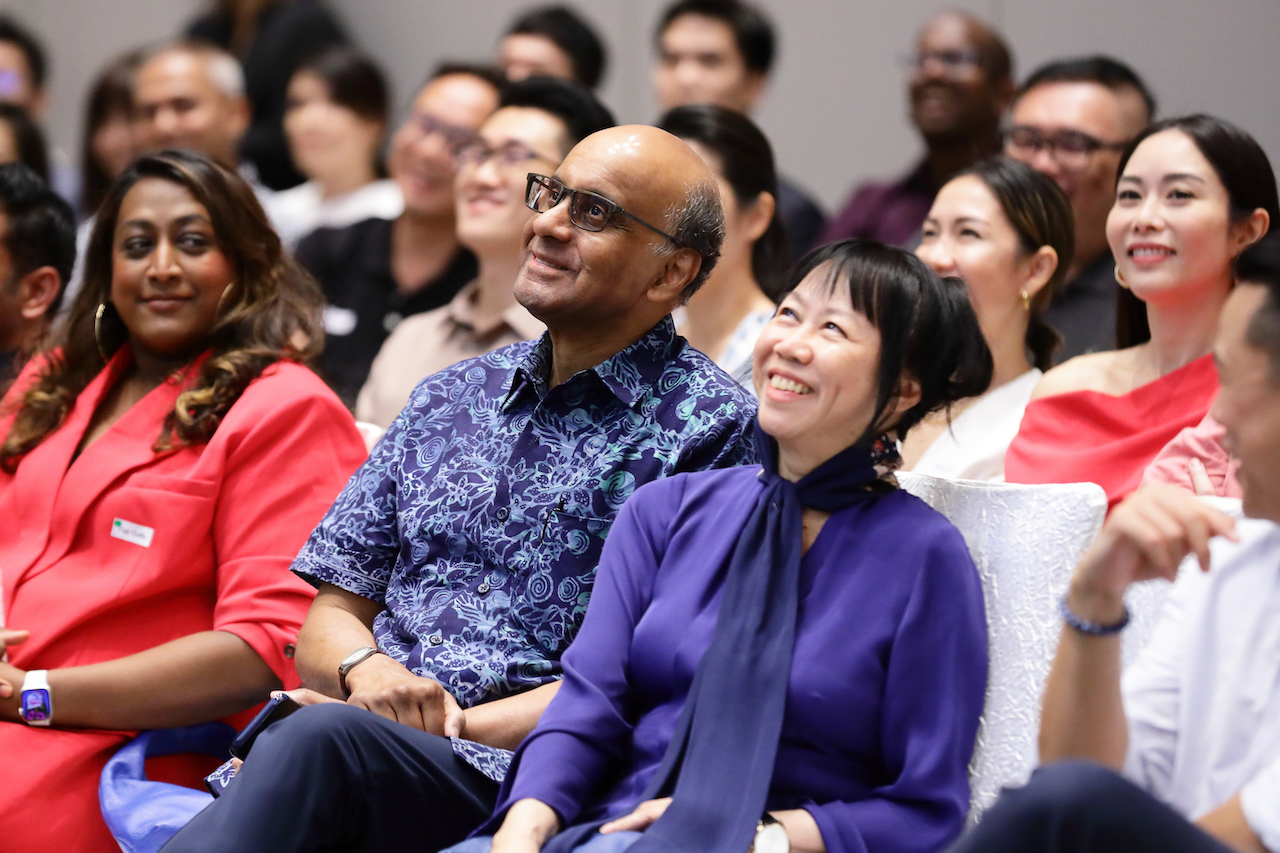Top image: Suhaimi Abdullah
In my inbox sat two invites; one for an event on a Saturday, the other for the very next day. Both involved the same thing—getting up close and personal with Tharman Shanmugaratnam.
As a 25-year-old, it’s a peculiar situation to consider. After all, it’s an entire weekend dedicated to what Singapore’s most popular ex-minister and current presidential candidate has to say to young Singaporeans. It is, as my peers would say, quite a flex.
ADVERTISEMENT
Both youth-oriented events were exclusive invite-only dialogues with Mr Tharman. The invite for Saturday’s outing was in my capacity as co-founder of Malay advocacy platform Lepak Conversations; Sunday’s event was in my capacity as a “young thought leader”.
My biggest curiosity, though, was why these dialogues were being held. At this point, Mr Tharman had resigned from his ministerial role, and eligibility for the presidential candidates was not yet announced.
With his political and personal clout, the man shouldn’t be too anxious about garnering support for his bid. He certainly has no issues getting invited to speak at private dialogues like the two I attended.
If the dialogues were meant to garner positive recognition from young thinkers and key opinion leaders, he seems to have succeeded. Because from all I’ve seen in a weekend spent with Tharman, everyone wants their own Tharman flex too.
Clearly a People’s Person
There were two key themes brought forth by Mr Tharman in both dialogues: Reducing the social gap and measuring success through intangibles.
With more than 20 years in politics, he clearly knew—quite intimately—the issues everyday Singaporeans are concerned about.
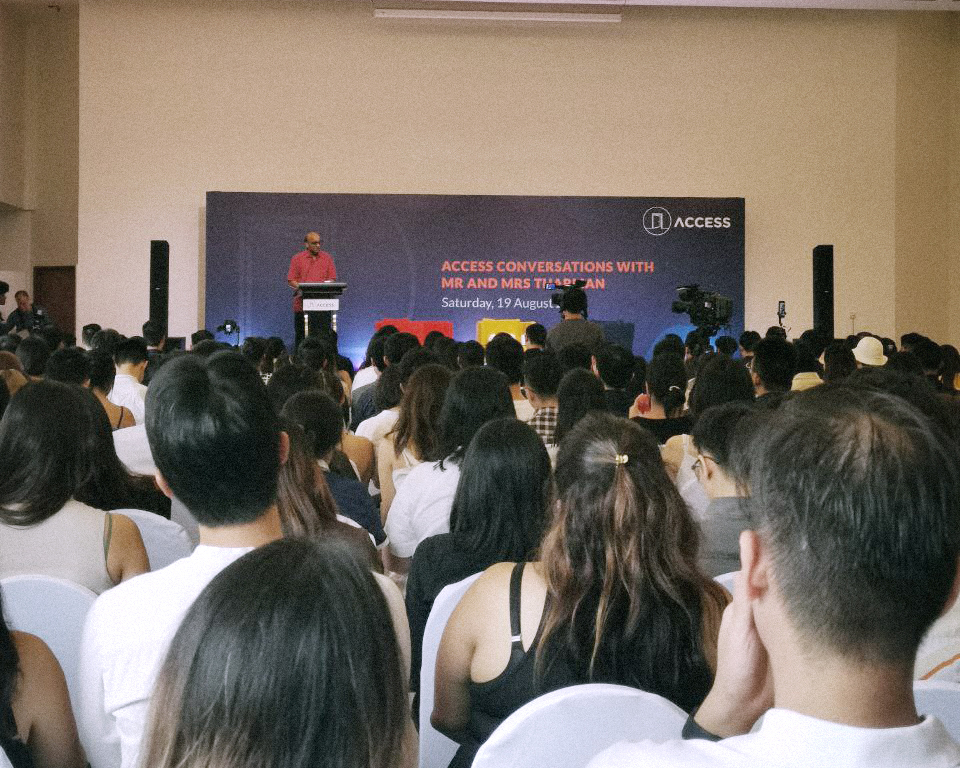
Saturday’s dialogue (Aug 19) at YWCA Fort Canning saw about 300 youth leaders, community activists and influencers in attendance, with Mr Tharman speaking mostly about education and social issues.
His suggestions: Increasing interaction between high- and low-SES students, assessing the selection process for students of top schools, and giving low-SES students the social network they lack.
It didn’t need to be said, but he was addressing the issue of privilege and elitism. Claps and nods all around when he spoke of reforming culture in schools and addressing microaggressions towards minority and lower-income groups.
On Sunday (Aug 20), the Ask Me Anything event was a more intimate session at NUS Guild House with about 100 attendees. Some very public figures were seen—influencers, celebrities, founders of VC firms, and a retired national athlete (U.K. Shyam, Singapore’s fastest man) were among them.
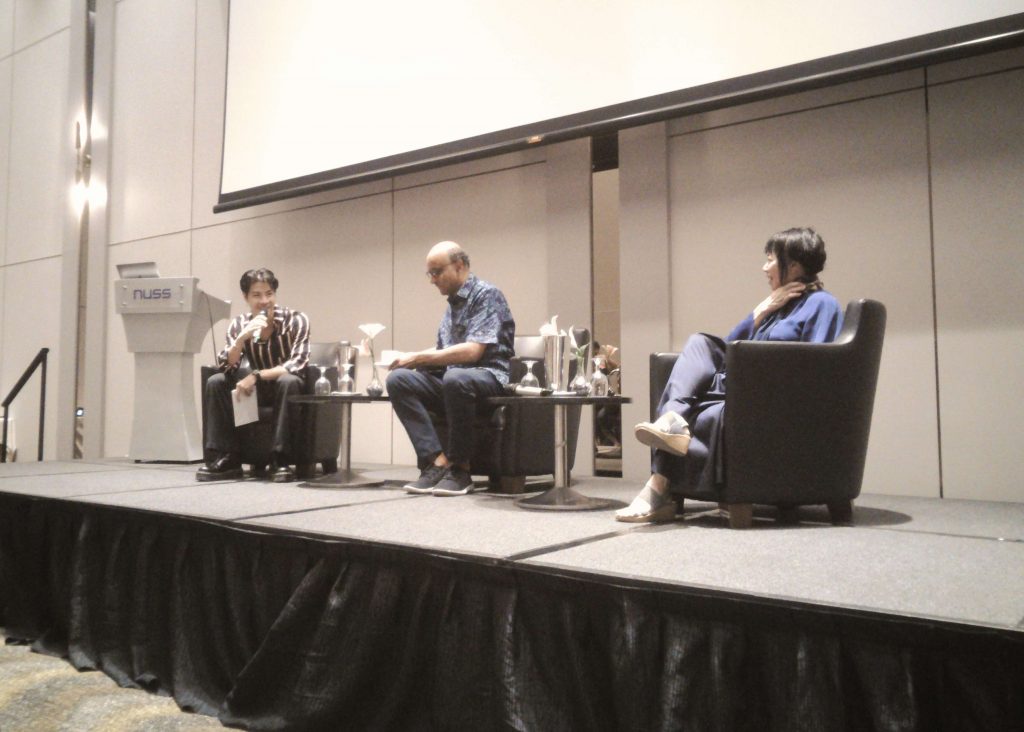
This was where his people skills truly shone. He remembered the names of those who asked questions. He could list the achievements of those in attendance and interact with them with such affability that one might think they were already buddies.
ADVERTISEMENT
In this regard alone, Mr Tharman could easily win the hearts and votes of many Singaporeans through pure charm. But is being a people’s president enough?
It’s worth pointing out that his wife, Jane Yumiko Ittogi, was also part of these events. As accomplished as she is in her own right in the law and arts sectors, questions about their interracial marriage and Mr Tharman’s “most annoying trait” were some pertinent curiosities participants had.
Managing Difficult Conversations
It’s a youth dialogue, so capital punishment and queer issues are inevitable topics broached by young activists in attendance. True enough, those questions were asked in quick succession on Saturday.
On the death penalty, Mr Tharman deftly shared his vested interest in social activism—specifically in giving people “second, third, and fourth chances”. He also shared his experience working closely with former inmates and the Changi Prison.
“Don’t stop being an activist,” he encouraged, stating that advocacy requires a keen art of persuasion and convincing with the right tactic.
Though he didn’t address directly the concerns of the queer community about housing and other policies, he responded broadly that change cannot be rushed. The intersectionalities of different beliefs between generations and faith groups need to be considered too, he says.
Basically, we’ve heard it all before. Both responses left a lot to be desired, yes. But at least Mr Tharman didn’t shy away from addressing other hard stuff head-on because he was certainly unafraid to talk about race.
“Never think that growing up as a minority is the same as growing up as a majority in Singapore. It isn’t,” he said.
“We need to be aware of nuances—we can do a lot more. The elite needs to be sensitive to the needs of minorities from the lower rung.”
Amid his constant mention of how sports shaped him, he motioned that “we’ve become too ethnically defined in sports”.
He pointed to table tennis athletes that were Chinese, and soccer teams that are largely Malay. “Look at the 1977 Malaysian Cup,” he added. As a multi-ethnic team comprising star players such as captain Samad Allapitchay, Zainal Abidin, and Quah Kim Song, it suggests that a diverse team could play a big role in uplifting Singapore’s sports scene.
‘What You See Is What You Get’
When asked directly why one should vote for him, Mr Tharman replied, “I’m quite different from the other candidates. I’ve always been doing this.”
“What you see is what you get.”
It’s not hard to see why. Besides serving as Deputy Prime Minister from 2011 to 2019, he was Coordinating Minister for Economic and Social Policies for four years, Minister for Finance for nine years, and Minister for Education for five years. He was also the chairman of the Monetary Authority of Singapore and the deputy chairman of the Government of Singapore Investment Corporation. The list of achievements could go on.
But the question remains: What role will he play as a president?
Building on his tagline, ‘Respect For All’, he emphasised creating a culture of respect for society by working with NGOs and people on the ground to achieve this mission.
“There’s a lot of space for policy and politics that the president can be part of,” Mr Tharman says. He cited supporting ground initiatives as an example, having been a long-time patron of Tasek Jurong, which houses the largest program for women’s soccer and the only free tuition scheme for students from the Normal Technical stream.
“It’s not even political, but it’s damn important,” he affirmed.
The Tharman Bandwagon
Crowds clamouring for a selfie with politicians isn’t uncommon. Somehow, it takes on a whole new level with Mr Tharman at the two events.
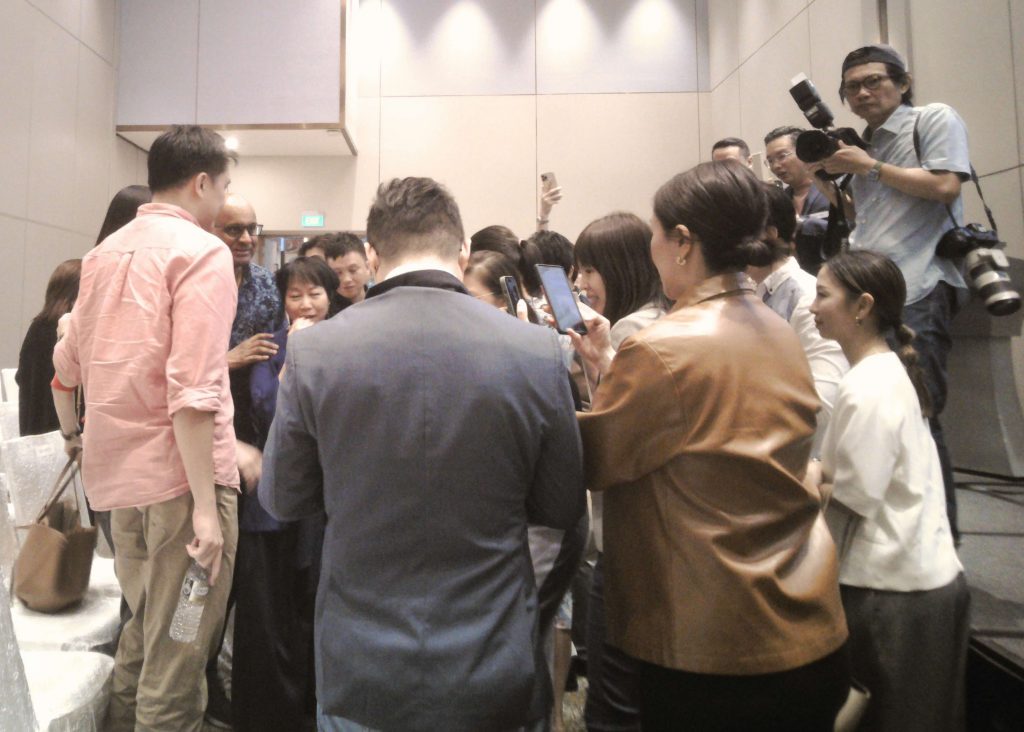
What made this different was the indirect rallying it gave Mr Tharman as an aspiring president. Social feeds are filled with influencers and content creators posing in selfies with the man or asking what red flags to avoid in a potential partner.
It didn’t help that Sunday’s event started 50 minutes late because influencers were creating content with Mr & Mrs Tharman right next door, where the rest of us were waiting. None of the content they were creating was sponsored.
“I’m voting for Mrs Tharman” and a slew of fire and clapping hands emojis fill the comments section of their posts. Social media shaped GE2020. This hasn’t gone unnoticed by politicians looking to win the votes of young Singaporeans.
On Diversity
As an advocate for the minority community, I actively observed the racial makeup of the two events. I saw (at best) 15 Malay attendees out of the 300 youths that came on Saturday. Though I did see quite a handful more Indian participants, which led me to wonder if the Malay community lacked community leaders and influencers.
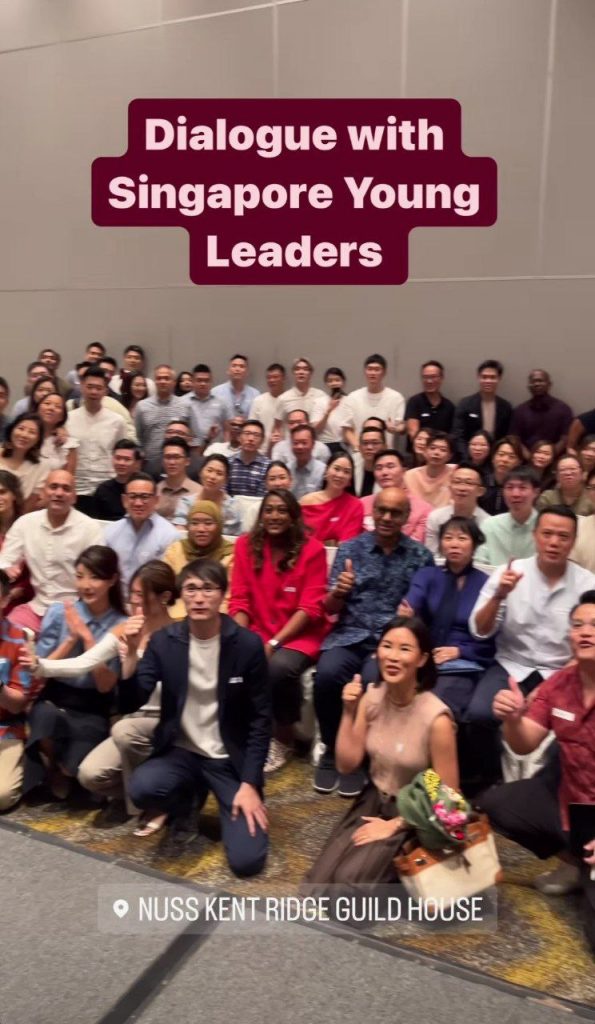
But I know this isn’t true because I knew a list of names who could have benefited from being present. The organisers clarified that they did invite participants from minority groups but they weren’t able to make it due to last-minute obligations.
It did seem like I was the only female Malay attendee at Sunday’s event—a private gathering for the event organiser, his friends and his business network.
I saw an Instagram post from a participant from Saturday’s dialogue post saying that it was “the most diverse” event they’d been a part of. I beg to differ.
If there’s anything Mr Tharman was spot-on about Singapore’s future, it’s the need to broaden the concept of multiculturalism. If Saturday’s event were considered “diverse” to a young Singaporean of influence, there’s a lot more to be done.
What does it say about Mr Tharman’s current popularity, then? In a race between an Indian man and two Chinese candidates, is ethnicity not a factor for voters in this year’s presidency?
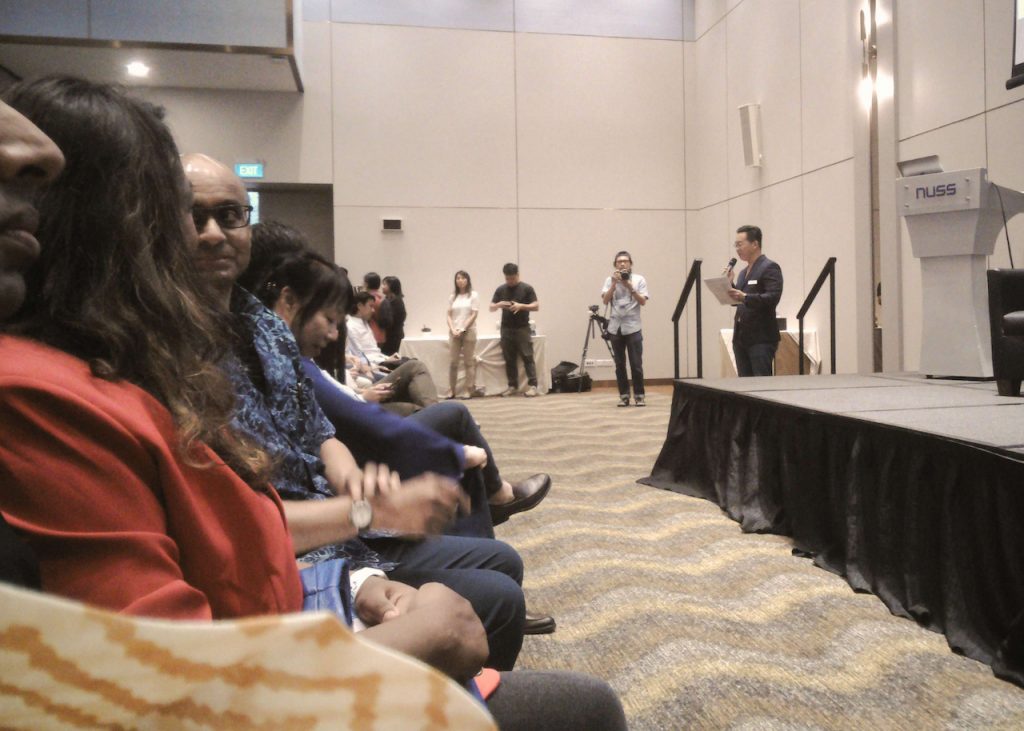
What About the Other Presidential Candidates?
These two events barely tick off the many public engagements Mr Tharman has been involved in following his resignation from the PAP on July 7.
Mr Tharman has the clout to be invited to these events at convenient and well-equipped venues by prominent organisations and public figures. His fellow candidates, Tan Kin Lian and Ng Kok Song, will have to chart their own path by extensively walking the ground to earn voters’ trust. Without the same level of influence, they’re marketing themselves through flyers, pamphlets, tissue packets and good ol’ social media.
If anything, the other two presidential hopefuls would find it near impossible to campaign the way Mr Tharman has because they don’t share the same extensive network and goodwill that the former minister has built over the years in public service.
Is this an unfair advantage? Or is this simply a forecast of how things will turn out in the Presidential Election results?
With Mr Tharman’s long-standing popularity among Singaporeans, the general sentiment is he’ll easily win by a monumental margin. Surrounded by cheering attendees and influencer supporters, I can’t help but agree.
As Polling Day draws closer, I’m curious to see how much more campaigning Mr Tharman will do. Honestly, I didn’t think Singaporeans would be so invested in a candidate’s personal life. The selfie moments, trivial questions, and kaypoh-ness about his marriage prove otherwise.
I find it hard to see how answers to intensely personal questions will inform their votes—though things might be different now. Way different.

